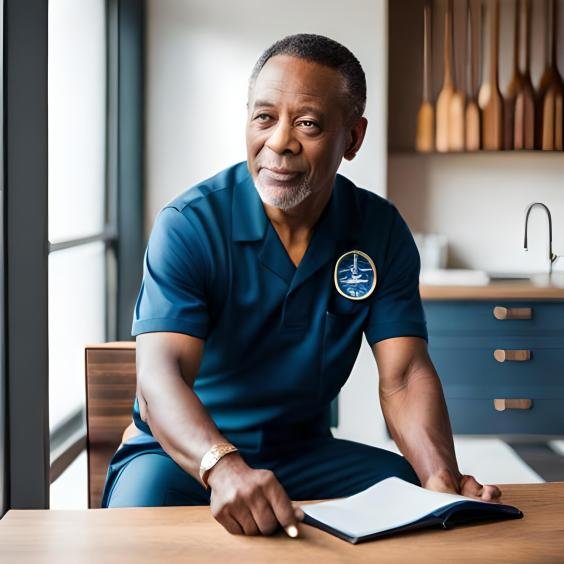As a society, we owe a profound debt of gratitude to our veterans, and one way to repay that responsibility is to provide them with the best care possible. Help is available from VA Home Health Care Workers. Veterans may maintain their independence and quality of life with the help of these professionals, who provide home health care. VA home health care professionals play an important part in our society by ensuring that veterans receive the care and attention they need.
The aging veteran population is increasing the demand for VA home health care workers. Veterans can get everything from basic home health care to specialized medical treatment from these professionals. Whether it’s helping a veteran keep track of their medications or providing assistance with basic housekeeping, VA home health care providers make a meaningful difference in the lives of the people they care for.
If you’re looking for a position as a VA home health care provider, you’ve come to the right place. In this article, we’ll discuss the services provided by VA home health care professionals, as well as their salaries, entry requirements, and the educational advantages available to them via the VA. Let’s get underway then!
What’s the Difference Between Home Care and Home Health Care?
Elderly people often need assistance with basic activities like washing, dressing, cooking, and remembering to take their medications. It is possible for seniors and Veterans to receive the same level of care that they would receive in an assisted living facility from a home care provider. Workers in the home care industry might have a wide range of educational and occupational backgrounds, but all must pass a competency assessment before being hired by a home care service.
When an elderly person needs long-term medical care but prefers to remain in the comfort of their own home, they might benefit from home health care services. Nursing, physiotherapy, and other forms of expert medical treatment are brought to the patient’s house by home health aides in these situations. Professional home health aides always have relevant medical experience and training.
How much does veteran home care cost?
Full-time homemaker services for veterans in the United States cost an average of $125 per day. The monthly salary for working forty hours a week is $3805, or $45,760 annually. Average fees for home health aides are higher, coming in at $127 per day or $3861 per month or $46,332 annually.
It’s undeniable that the VA’s pension helps defray a sizable chunk of the cost of providing in-home care for veterans. It’s important to remember that not every veteran will need constant assistance. Services provided by trained professionals are adaptable, including short-term care, care after surgery, and care on a part-time basis.
Full-time home care may not be necessary for veterans who have a supportive family unit or partner with whom they live. In these situations, having a break from caring for a loved one can be a huge help. Family carers should seriously consider using occasional respite care to avoid caregiver burnout.
The VA’s home health aide program offers veterans who need just occasional help around the house with up to 12 hours of care each week. Having a serious cognitive impairment and needing assistance with at least three ADLs are other prerequisites for admission.
Veterans who need short-term assistance at home might benefit from the VA’s respite care program. Veterans who have substantial cognitive impairment or who require assistance with at least three ADLs must undergo an interdisciplinary examination to determine eligibility.
Guidelines for Eligibility of Veterans Administration Funded In-Home Care
In order to receive VA home care, a veteran must satisfy three broad qualifying requirements.
Enrollment in VA Health Care Benefits
A veteran must first meet VA requirements in order to get health care benefits. In general, the VA’s standard medical benefits package is available to every veteran who served in the active military, navy, or air service and was not dishonorably dismissed. Most elderly veterans have already sought and obtained VA health care benefits well before they require in-home care.
The VA places each applicant into one of five priority categories determined on their military service, disability rating, income, and receipt of other benefits (such as Medicaid, a VA pension, or disability compensation). How fast a veteran is enrolled in health care coverage and how much (if any) they are responsible for paying depends on the priority category they are assigned to.
Eligibility for Community Care Services
The next requirement is that a veteran who has enrolled in VA health care is also qualified for community care. Veterans can qualify for community care if they meet just one of the six expanded criteria established by the VA MISSION Act of 2018. “no VA facility provides the hospital treatment, medical services, or extended care services required by the veteran.”
The HHA Program is unique because it relies on non-VA community providers (public and private home care firms) to deliver long-term care services. Any veteran in need of homemaker or home health aide services is immediately eligible for community care because the VA does not supply them directly.
Criteria for Medical Acceptance of HHA Services
Finally, a veteran must demonstrate a medical requirement for HHA care. A thorough evaluation will be performed by either their regular care provider at the VA or a geriatrics care team to ascertain the degree to which they require assistance with ADLs and IADLs.
If a veteran’s evaluation determines that they meet the following clinical qualifying conditions for the VA Homemaker/Home Health Aide Program:
- Three or more ADL dependencies; or Severe cognitive impairment; or
Veteran has dependence in two ADLs and at least two of the following apply:
- Linked to at least three IADLs;
- is at least 75 years old;
- has been labeled as suffering from major depression;
- independent and socially active;
- has been released from a nursing home or will soon be released if they receive home and community-based care services;
- Someone who has had three or more hospital stays in the last year, or who has visited an outpatient clinic or emergency assessment unit twelve or more times in the past year, is considered to have high medical care utilization.
VA Form 10-0415, Geriatrics and Extended Care (GEC) Referral, shall contain the official evaluation findings, agreed upon care objectives, and suggested type(s) and length of therapy. If a veteran meets all of the criteria above, the main care provider at the VA will order H/HHA treatments, and maybe other services to supplement this care. Remember that a veteran may still be able to prove a clinical need for in-home care and acquire an order for services even if he or she does not perfectly meet the conditions listed above.
Using VA Benefits for Home Health Care
Benefits from the Department of Veterans Affairs are available to service members even after their active duty has ended. One such perk is senior veteran access to in-home health care, which is often overlooked. Anyone who is eligible for VA services can take advantage of this perk. Even if you’ve never signed up for VA healthcare or seen a VA doctor before, you may still take advantage of this incredible perk. The Veterans Administration will begin paying for a participant’s home care as soon as they enroll.
You may be thinking about getting help if you or a family member are veterans who are finding it increasingly difficult to do the things you formerly took for granted, such as getting around on your own or taking care of household duties and responsibilities. Many seniors have a hard time seeing themselves living somewhere else, and many more have trouble letting go of the security and comfort of the home they’ve called “home” for many years. In-home medical attention is the solution.
You may be wondering what kinds of long-term care services the VA provides for injured or ill military members.
- Care for patients throughout the clock
- Expertise in Physical Therapy and Rehab
- Caregiving services include assisting with personal care, getting dressed, going grocery shopping, preparing and eating meals, getting to and from appointments, and taking medications.
- Assistance with chronic or acute pain management, as well as comfort and palliative care
- Assistance provided temporarily to replace regular caretakers
This treatment can be provided by the VA itself, or by a state or privately owned provider if it has been vetted and approved by the VA. Care can be given either at an institution or at the veteran’s place of residence.
Concluding Remarks
As a last thought, keep in mind how crucial VA home health care providers are to the support and care of our country’s veterans. These groups do outstanding work for veterans who are in need of medical treatment and assistance with day-to-day activities.
In order to work with the VA in home healthcare, you must first meet the state’s educational, practical, and licensing standards. It is also important to verify that you have passed all necessary fingerprint screenings and background checks and that you are officially registered with the VA to provide treatment to veterans.
For instance, in Florida, all VA home health care providers must consent to a level 2 background check conducted by a firm that has been approved by the Florida Department of Law Enforcement (FDLE). By doing so, we can make sure that our veterans won’t be put in danger because of the caregiver’s criminal past.







